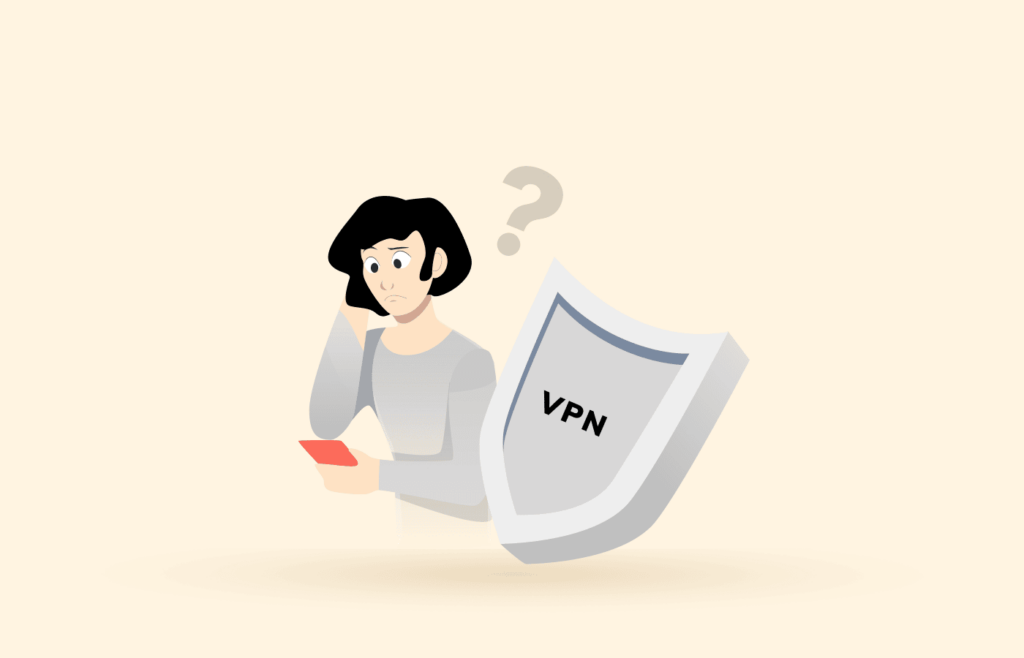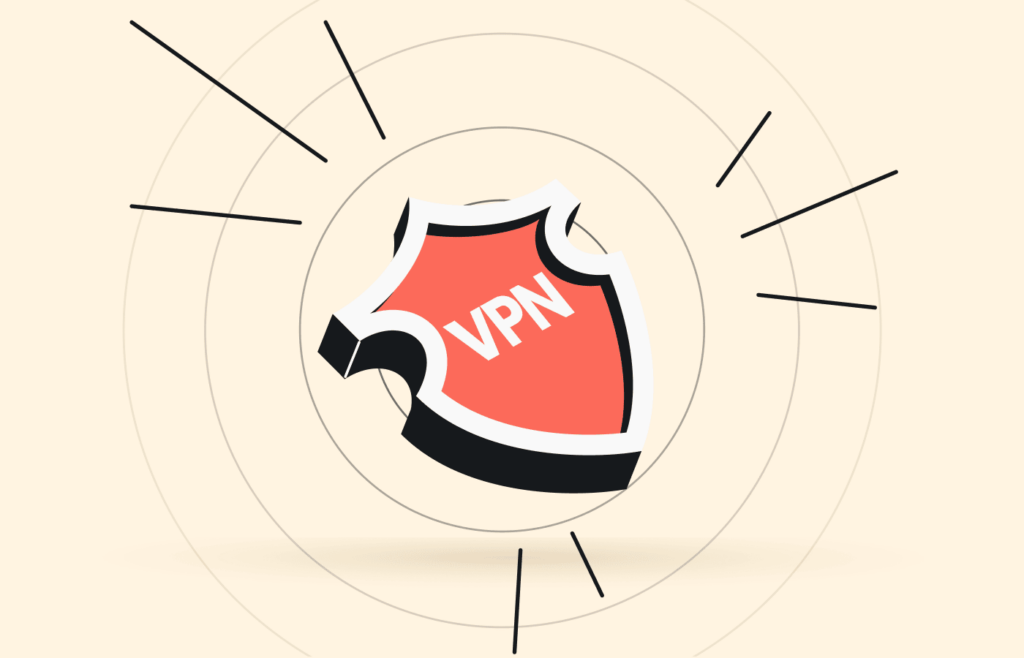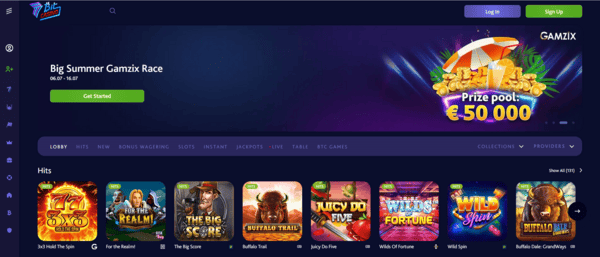
Imagine a scenario where you are all set to indulge in your favorite online casino games, only to get an unpleasant message declaring the website inaccessible in your region.
Frustrating, right?
This article has the answers to all your questions. So, sit back and read on to find out how to avoid gambling restrictions and the top VPNs that allow you to do this easily.
How to avoid restrictions while gambling – Quick guide
- Subscribe to a VPN service for gambling. NordVPN is one of the most reputed providers and our top recommendation, as it grants you access to online gambling sites.
- Next, you should install a VPN application on your computer or mobile device.
- If you’re looking to use a VPN for gambling, opt for a VPN server in the same country as the gambling website.
- Once connected, you can enjoy unrestricted access to the gambling site.
Top VPN services for online gambling today
Below is a quick list of the top 3 VPNs that allow you to avoid location-based restrictions and enjoy online gambling to the fullest.
- NordVPN: It offers an impressive network of 6,800 servers across 113 countries. One noteworthy feature is that NordVPN operates under Panama, meaning it has no legal obligations to keep data logs of your only online activities.
- ExpressVPN: It takes the top spot on our quick list as the best VPN for online gambling. With an extensive network of over 3,000 servers across 107 countries, ExpressVPN offers outstanding global coverage for easy access to online casinos.
- Private Internet Access (PIA): With over a decade of experience in the industry, PIA offers robust networks and cutting-edge privacy tools. PIA utilizes high-speed servers in roughly 91 countries, allowing online gamblers to access their preferred platform regardless of geographical restrictions.
How are online gambling restrictions enforced?

Most countries that enforce strict restrictions on online gambling heavily rely on gambling websites to identify and block foreign visitors by examining their IP addresses. Consequently, it has become commonplace for individuals to use VPNs for online gambling. Individuals can modify their IP addresses and effectively disguise their location using a VPN.
While using a VPN can be an option to avoid online gambling restrictions, it is noteworthy that there are no assurances that it will work. For instance, popular betting sites in countries like the United Kingdom employ rigid Know Your Customer (KYC) checks to verify user information during signup.
Similarly, if you lack a digital footprint in the country associated with your IP address, creating an account may prove difficult or even impossible.
Moreover, even if you create an account on a website that restricts IP addresses from your country, money withdrawal can present another hurdle. Often, many platforms require proof of identity and address before processing significant winnings.
Generally, effectively bypassing these online gambling restrictions is quite tricky. However, despite the obstacles, some individuals still try to access and gamble on specific sites by utilizing a VPN.
How to avoid restrictions when gambling online? All possible ways

While online gambling offers infinite excitement and the chance to win big, navigating the landscape can sometimes be daunting, as limitations imposed by certain regions hinder it. This is where VPNs become an essential tool for any online gambler.
As you may know, VPNs provide a gateway to avoid restrictions and maximize the number of gambling sites you can access to increase your gaming potential.
Not stopping there, the VPN goes the extra mile by providing top-notch privacy tools, particularly to gamblers looking to unblock online casinos, and ensures ultra-fast internet connection.
Other effective strategies that can help navigate online gambling restrictions and enjoy the thrill of online gambling include:
- Researching jurisdictional regulations: Notably, online gambling laws and regulations vary across different countries and regions. Before diving into the virtual gambling world, you must get familiar with your jurisdiction’s legal landscape. This ensures compliance and helps avoid any potential issues.
- Select gambling sites with global accessibility: It is advisable to opt for online gambling platforms prioritizing accessibility across different regions. Consider websites with various language choices, a global presence, and a variety of currencies.
- Explore cryptocurrency options: Cryptocurrencies like Bitcoin provide an additional layer of anonymity. They can also facilitate transactions in regions or countries where traditional payment methods may face restrictions. Using cryptocurrencies for deposits and withdrawals increases privacy and can help avoid certain financial restrictions.
- Stay informed and adapt: Online gambling restrictions are dynamic and subject to change. It’s not news. It is advisable to stay updated on your jurisdiction’s latest developments. Adapt your strategies whenever necessary.
How betting using Virtual Private Networks (VPNs) works

Accessing your favorite online gambling sites from a country prohibiting them can be daunting. However, a Virtual Private Network (VPN) offers a safe and effective solution.
With a VPN service, you are open to a world of possibilities, as it allows you to redirect your internet connection through a server located in your country or a country with more lenient gambling regulations, including the United Kingdom and the United States.
This means you can participate in popular casino games, poker, sports betting, and other forms of online gambling, even if they are officially banned in your country. Furthermore, VPNs offer additional benefits that enhance your online gambling experience.
One such advantage is enhanced privacy and security. A VPN encrypts your internet connection, ensuring your gambling sessions remain safe from prying eyes. This encryption makes it extremely difficult for government agencies, hackers, or Internet Service Providers (ISP) to monitor or track your online behavior, offering you an extra layer of protection.
Why are there limits placed on online gambling?
In many independent nations worldwide, governments have enforced legislation that makes participation in online gambling illegal. The rationales behind these limitations vary across countries and can be categorized into social, political, and religious considerations.
Notably, religious factors also play a role in shaping the restrictions on gambling, particularly in nations with solid religious practices.
Gambling, be it traditional or online casinos, is deemed illegal in certain nations, including for their inhabitants. However, visitors from other countries can participate in various online casino games despite the prohibition within the host country.
Although this may come as a surprise, it emphasizes the various reasons that have led to the enactment of such laws, as understood by the respective nations.
On the contrary, most nations in Western Europe permit gambling, which has led to the concentration of Internet casinos in those countries.
Regardless, it is noteworthy that residing in a country where gambling is restricted does not grant individuals access to these online casinos. To prevent such incidents, specific global regulations have been enforced. These regulations aim to ensure compliance and prevent individuals from circumventing the restrictions set by their home countries.
Which countries allow you to gamble online?

Although the legal status of online gambling differs worldwide, most countries have embraced and regulated this form of entertainment. These nations have established various frameworks supporting online gambling.
1. Canada
Online gambling has recently gained popularity, with numerous platforms offering residents various gaming options. Two major regulatory bodies oversee the country’s gambling activities, including the federal and provincial laws.
The Criminal Code of Canada controls online gambling at the federal level. Section 207(4)(b) of this code allows provinces and territories to operate and manage online gambling operations. While some provinces have established government-operated gambling platforms, others have allowed offshore operators to serve their residents.
The British Columbia Lottery Corporation (BCLC) in British Columbia is one of the most notable examples of provincial online gambling. Similarly, the Atlantic Lottery Corporation (ALC) supervises online gambling in Atlantic Canada. You must note that the legality of offshore online gambling sites outside Canada remains a grey area.
2. United States
Federal and individual state laws govern the legal framework surrounding online gambling in the United States. At the federal level, the Unlawful Internet Gambling Enforcement Act (UIGEA) regulates online gambling, which prohibits financial institutions from processing payments related to online gambling activities deemed illegal under federal or state laws.
Some states that have legalized various forms of online gambling in the US include:
- Delaware: Delaware was one of the first states to legalize online gambling in the US. The state offers online casino games, poker, and sports betting through licensed operators. However, players must be physically present in Delaware to gamble online.
- New Jersey: New Jersey is also a frontrunner in online gambling legalization. Like Delaware, New Jersey offers online casino games, poker, and sports betting. However, operators must have licenses under the New Jersey Division of Gaming Enforcement and partner with land-based casinos to provide their services.
- Michigan: Recently, Michigan established online gambling, allowing licensed operators to offer players poker, online casinos, and sports betting. However, interested players must also be physically present in the state to participate.
Several other states allow online gambling in the US, which include:
- West Virginia
- Pennsylvania
- Iowa
- Nevada
3. United Kingdom
Online gambling has grown massively in the United Kingdom over the years. It has become an integral part of the country’s gambling industry. The laws established under the Gambling Act 2005 govern online gambling in the UK.
Generally, the Gambling Commission, an independent non-departmental body established under the Gambling Act, oversees online gambling in the UK. The body’s primary objective is to allow gambling promotion in all forms, provided that it is legal and adequate protection is in place to prevent such promotions from undermining the licensing objectives.
Another critical concept to note is the “white-listed” jurisdictions. This is also one of the essential features of online gambling in the UK. Furthermore, operators within these jurisdictions can advertise and offer their services to UK residents without obtaining an additional UK license. This approach promotes international cooperation and extends the availability of online gambling options for UK players.
The introduction of the Gambling (Licensing and Advertising) Act 2014 further supported online gambling regulation in the United Kingdom. This act required all online gambling operators, regardless of location, to get a license from the Gambling Commission to provide their services to UK customers.
4. Curacao
Curacao is a famous Dutch Caribbean island with a reputation as a popular licensing jurisdiction for online gambling operators. It offers a well-regulated and internationally recognized framework through the Curacao Gaming Control Board. Notably, online gambling operators licensed in Curacao can cater to players from various regions across the globe.
The regulatory framework in Curacao includes licensing requirements, anti-money laundering provisions, and player protection measures. Licensed operators must adhere to strict guidelines to ensure responsible gambling, fair gaming, and the security of personal information and player funds.
Popular gambling sites and their stance on VPN use
In this section, we will delve into the policies of some of the leading betting and gambling sites regarding using VPN connections by users. Interestingly, you must note that many of these highly popular online gambling sites prohibit using VPNs. Violating this restriction may result in potential consequences, as stated earlier.
It is worth exploring these platforms to understand their reasoning and the measures they use to secure their users’ gambling experiences.
1. Bovada

Bovada, a well-known online gambling platform, has made its stance clear in terms of service regarding fraudulent activity by players. Also, Bovada’s terms of service mention using VPNs or proxy servers that conceal the user’s location as an example of prohibited activity.
According to Bovada, if they determine that a player has employed such techniques, provided false information, or engaged in betting, wagering, or poker play on behalf or through a third party, they have the right to take immediate action by terminating the player’s account or denying access.
2. Roobet

Roobet has a strict policy regarding the use of VPNs. Due to the nature of their platform, Roobet encounters many users attempting to access the site from locations where online gambling may be illegal.
However, in their terms, Roobet states that users cannot utilize their services as an anonymizing proxy, VPN, or similar tools to avoid legal restrictions set by countries that block Roobet. Violating this policy may result in harsh consequences, including the immediate closure of the account, leading to the denial of any winnings and remaining balance.
3. BetOnline

BetOnline specifically addresses the use of VPNs in their terms and conditions under the section “Tools not related to Poker.” The platform strictly restricts using Virtual Machines and any software designed for screen-sharing or remote access.
Additionally, BetOnline emphasizes that the use of VPNs is carefully evaluated during gameplay reviews, and if it is deemed to be used to bypass their policies, appropriate action, as listed in the Fair Play Policy, will be taken.
4. PokerStars

As stated in their terms of use, PokerStars also prohibit the use of VPNs. During signup, users must agree they are restricted from receiving funds based on location. This means PokerStars prohibits using a VPN to change one’s IP address and bypass geographic restrictions.
A notable case that garnered attention involved a US resident whose winnings, amounting to $692,000, remained withheld as PokerStars discovered that the individual used a VPN. Using GeoComply technology, the company could detect VPN use.
5. Red Dog Casino

As outlined in its terms of service, Red Dog Casino prohibits players from using any software that assists in circumventing restrictions. Their policy prohibits activities performed from restricted countries, including those carried out by players using VPN connections and other forms of malware.
While Red Dog Casino’s terms of service may use the term “malware” to describe VPNs, it is crucial to understand that this description does not align with VPNs’ actual purpose or functionality.
6. 7BitCasino

7BitCasino, as reported, has policies that may lack clarity and consistency regarding VPN connections. In one case, a user claimed to have received information from customer service indicating that VPN usage was allowed. However, in an attempt to make a withdrawal, their winnings were withheld.
After a disagreement and resolution, their account was revived, and their winnings were restored, despite gambling with a VPN.
Given this ambiguity, players should exercise caution when using a VPN while gambling on 7BitCasino. This can help prevent potential misunderstandings and ensure a smooth gambling process.
7. 888Casino

888Casino has implemented measures to monitor software running on users’ devices. The monitoring device detects fraudulent activity, including using robots, malware, and other unauthorized software. Additionally, 888Casino states they carefully check for connections through proxies or VPNs.
Players must note that gambling online with a VPN connection on 888Casino may carry certain risks. The site’s monitoring measures and ability to identify VPN use imply that using a VPN while gambling on 888Casino may not go unseen.
8. William Hill

William Hill, a well-established bookmaker in the UK, Jersey, and Gibraltar, has specific policies regarding using VPNs on their platform. While their services may be limited to particular locations, some users may attempt to access the website through a VPN if they fall outside these regions.
However, their terms and conditions state that using VPN or proxy to conceal the location or identity of the accessing device is prohibited. They consider such actions as improper use of the account. Consequently, violating this policy could result in loss of funds and suspension.
9. Stake Bitcoin Casino

Stake Bitcoin Casino has gained popularity as a platform in the online gambling industry with cryptocurrency. Catering to users who prefer to gamble with cryptocurrency, Stake offers a unique gaming experience. However, when it comes to VPN use, Stake’s stance is negative, despite being used by notable streamers.
According to Stake, any attempt to conceal a user’s location, including using a proxy server, is strictly prohibited. Violating this policy may result in the forfeiture of winnings and account suspension or termination.
How to block gambling sites

Blocking gambling sites can be a proactive approach to minimizing access to online gambling platforms for someone using your device or your kids. It can also mitigate the potential risks of developing a gambling addiction. To this end, below are several effective methods that can be employed to achieve this goal:
- Content Filtering Software: This is a practical way to block access to gambling sites. You can install this software on your devices or network systems, allowing you to create customized filters that restrict access to specific categories of websites. Some examples include Gamban, BetBlocker, and GameStop.
- Parental Control Tools: Most parental control tools are available on all operating systems. These tools allow users to set up specific user profiles with customized settings, allowing them to block access to particular sites.
- Internet Service Provider Restrictions: ISPs often offer the parental control feature and assist in executing specific filters upon demand. You can block access to gambling sites at the network level by contacting your Internet Service Provider (ISP).
- Browser Extensions: Browser extensions like Block Site and StayFocused, allow you to block specific gambling sites and provide a safer browsing experience.
- Gambling Self-Exclusion Programs: Mostly, reputable gambling operators provide self-exclusion programs to individuals. These programs allow them to voluntarily exclude themselves from accessing their platforms for a certain period.
- DNS Filtering: By configuring your router or device’s DNS settings, you can block access to specific sites.
- Mobile Device Restrictions: Mobile devices can also offer in-built restriction features. This allows users to restrict access to certain content, including gambling websites. Similarly, users can enable parental controls or use third-party apps to block gambling sites on their mobile devices.
Although the listed methods can provide effective barriers against accessing online gambling sites, they may not be foolproof. Therefore, combining these methods with other approaches can address gambling addiction issues. Other routes you can take include seeking professional support or engaging in self-help.
FAQs
Yes. Proxies allow you to access blocked gambling sites by acting as an intermediary between your device and the internet. However, like VPNs, they may violate gambling platforms’ terms of service and your country’s laws. It’s always recommended to check your local laws first before using any tool to gamble online.
Absolutely. You can use crypto. Cryptocurrency for online gambling is a decentralized and borderless payment method. You also get anonymity and evade financial restrictions with this payment method.
Yes. As discussed in the article, several regions and countries have licensed and regulated online gambling platforms that operate under the law. Nevertheless, you must identify authorized gambling operators who follow local laws to protect yourself (play safe only).
Every coin has two sides. Financial losses, account suspensions, legal repercussions, and criminal charges can all result from circumventing online gambling restrictions. Compliance with the law and the terms of service of the online gambling platform is therefore crucial.


